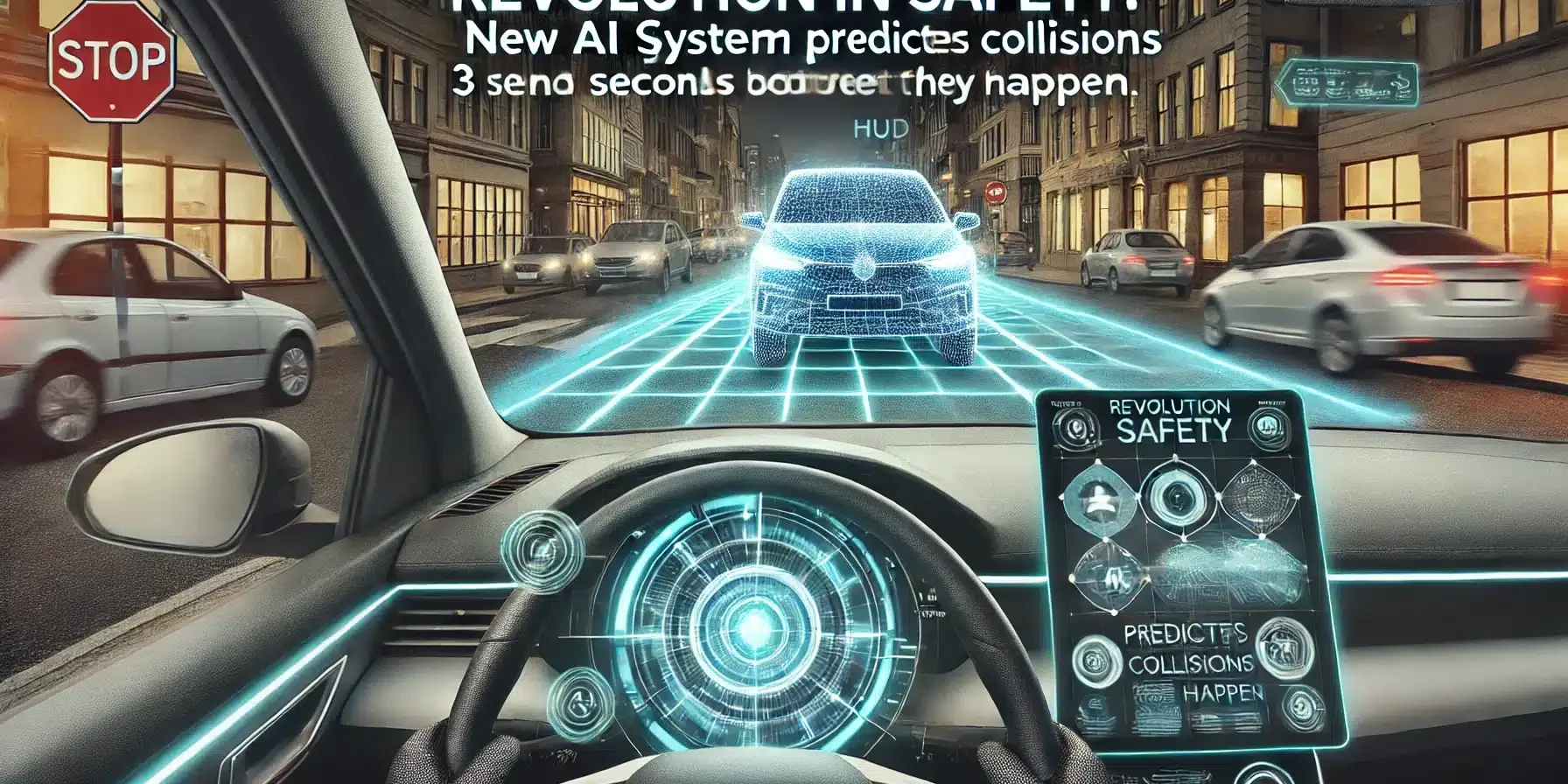Revolution in Safety: New AI System Predicts Collisions 3 Seconds Before They Occur
In April 2024, an international team of engineers and artificial intelligence scientists presented a breakthrough safety system for vehicles capable of predicting potential collisions with a three-second lead time. The system, named “PrediSafe,” uses advanced machine learning algorithms and neural networks to analyze vast amounts of data in real-time, allowing it to predict the movement trajectories of all objects in the vehicle’s surroundings with unprecedented precision. This innovative technology has the potential to significantly reduce the number of road accidents and revolutionize transportation safety.
PrediSafe is based on a comprehensive network of sensors, high-resolution cameras, and radars that continuously scan the vehicle’s surroundings in a 360-degree radius. This data is processed by an advanced AI processor that analyzes movement patterns, speed, and acceleration of all road users, also taking into account road and weather conditions. The system can predict potential collision scenarios, considering even subtle changes in driver or pedestrian behavior. Moreover, PrediSafe learns and improves its predictions with each journey, adapting to different driving styles and local road conditions. In case of detecting a high probability of collision, the system can automatically initiate preventive actions, such as warning the driver, preparing the vehicle’s safety systems, or even autonomous emergency braking.
The first real-world tests of PrediSafe have shown impressive effectiveness – the system was able to predict and prevent potential collisions in 95% of cases, significantly exceeding the capabilities of currently used safety systems. Automotive industry experts and road safety specialists agree on the potential of this technology to radically improve road safety. However, questions also arise regarding privacy and legal responsibility in case of potential system errors. Car manufacturers are already expressing interest in integrating PrediSafe into their future models, and some analysts predict that this technology could become standard equipment in vehicles within the next 5-7 years. Regardless of the challenges, the emergence of the PrediSafe system represents a significant step towards realizing the vision of zero road fatalities and underscores the growing role of artificial intelligence in shaping the future of transportation.







